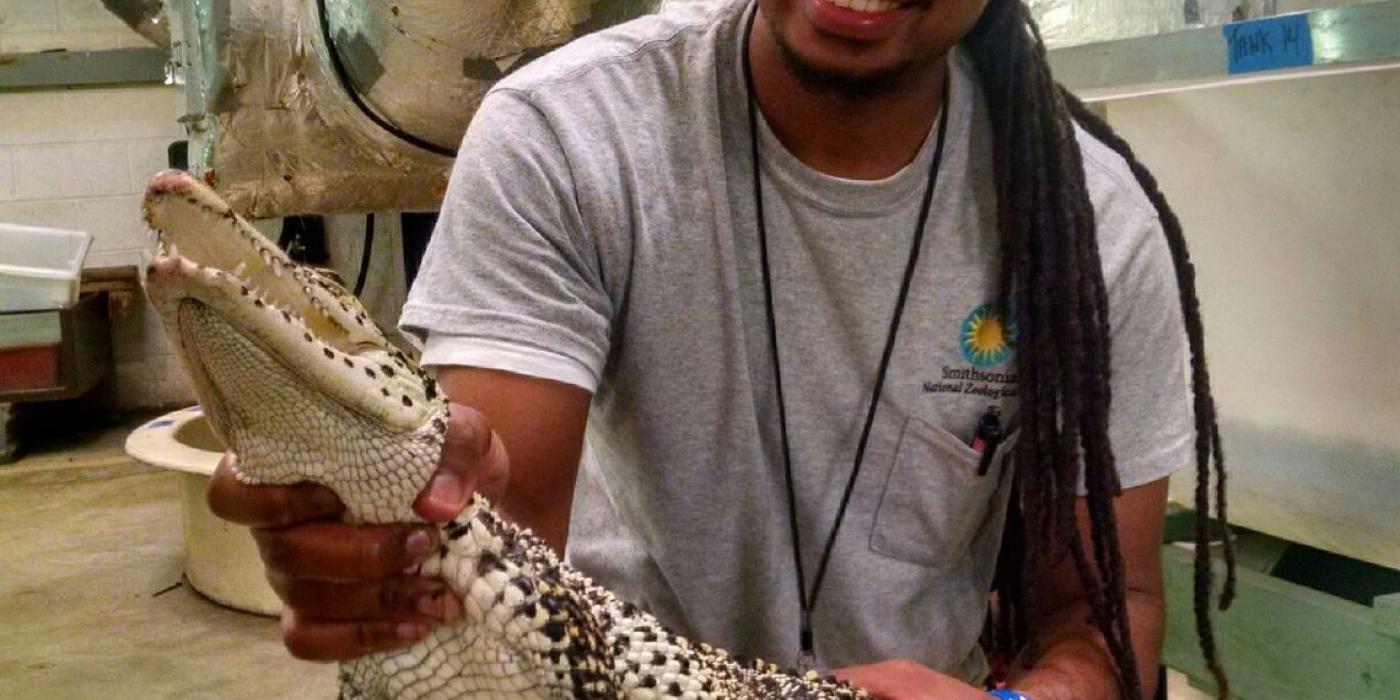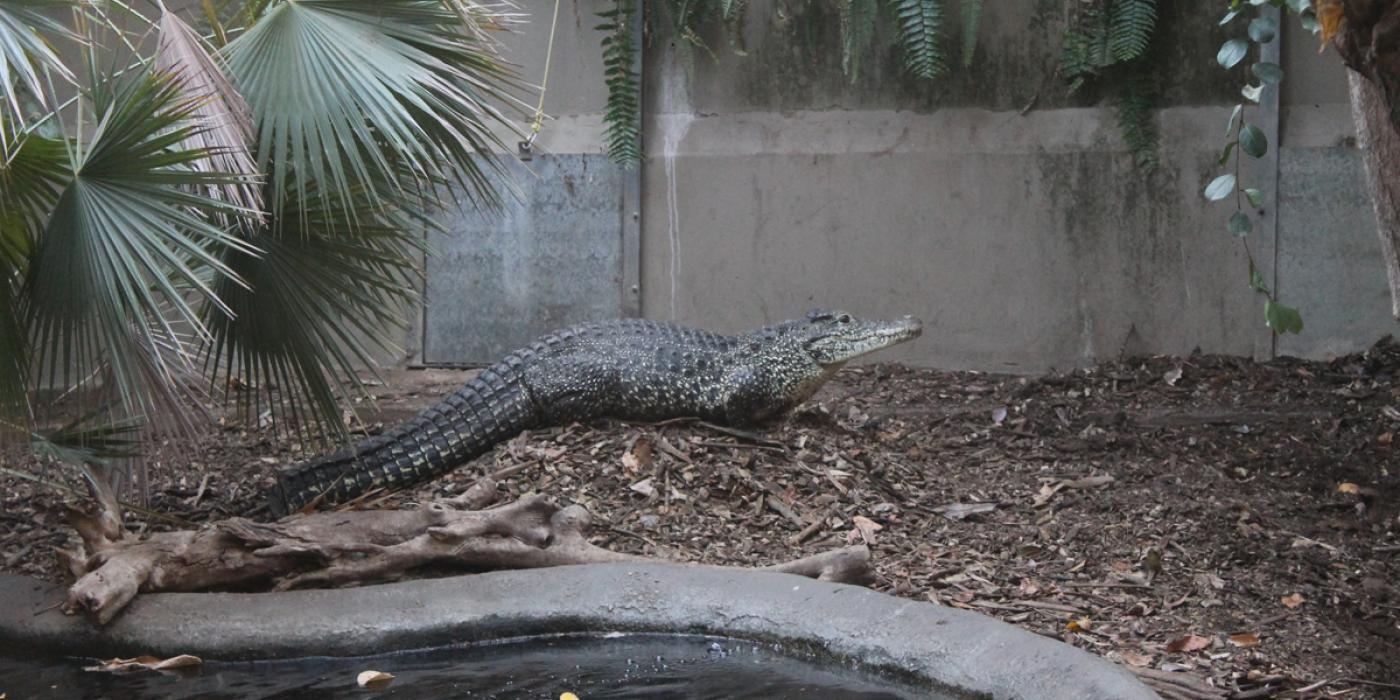The Croc and Gator Blog Oct 15, 2015
By: Lauren Augustine
During the first few months of their lives, our baby Cuban crocodiles are meticulously monitored to ensure they are growing properly. In addition getting an initial weight from them after they hatched, RDC keepers frequently weigh them each month to ensure they are eating and growing. It is important for keepers to make sure that the crocs are growing properly, because if they weren't that could be a sign of health problems in the future. The difficulty with weighing these little guys is that, unlike their older siblings who are crate trained, these babies have yet to be trained and need to be picked up and placed in a container for weights. Although they are small and harmless now, they are full of spunk.
As the baby crocodiles continue to grow behind-the-scenes at RDC, we are trying some new training with our adults on exhibit. We hope that through training they will voluntarily participate in blood draws for health checkups and veterinary exams. In order to get a blood sample from a crocodile, we have to get close to the crocodile safely.
We started training with our male, Jefe, because he is the most dominant and responsive crocodile. When we want to practice for a blood draw, keepers target Jefe between two trees and the fence line. When he moves to the target he is correctly positioned so keepers can get close to him, but there is a fence between us. One keeper can then begin touching his tail. When he allows a keeper to touch and move his tail we use a bridge. A bridge is an indicator so he knows that he is doing what keepers would like him to do. As the training progresses a veterinarian or a veterinary technician will being participating in the training process. If the training continues to go well, eventually Jefe will allow the medical staff to draw blood from his tail. There are no obvious veins visible in a crocodile's tail, but fortunately our veterinary team has lots of experience collecting blood from crocodiles and can get samples easily.
Related Species:


